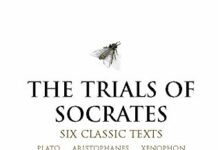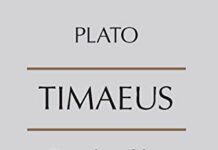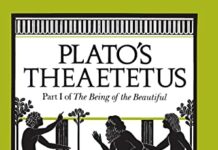
Ebook Info
- Published: 2004
- Number of pages: 239 pages
- Format: PDF
- File Size: 2.90 MB
- Authors: Plato
Description
Taking the form of a dialogue between Socrates, Gorgias, Polus and Callicles, GORGIAS debates perennial questions about the nature of government and those who aspire to public office. Are high moral standards essential or should we give our preference to the pragmatist who gets things done or negotiates successfully? Should individuals be motivated by a desire for personal power and prestige, or genuine concern for the moral betterment of the citizens? These questions go to the heart of Athenian democratic principles and are more relevant than ever in today’s political climate.
User’s Reviews
Reviews from Amazon users which were colected at the time this book was published on the website:
⭐This was our text fro a class I took and the class instructor helped but I would recommend this even if you are new to Plato. It is very readable
⭐This is one of my favorite Socratic dialogues. The evidence suggests that Plato wrote it soon after the execution of Socrates, and while I would not say there is a bitter edge to this Gorgias dialogue, I can definitely say that the exchanges do get a little lively at times. At one point, I could almost hear the voices of Socrates and Polus being raised as they argued. Another positive aspect of this dialogue is the fact that it is comparatively easy to understand. Socrates does not start spouting ideas about true Forms or using geometry to prove his points; the more esoteric, more advanced Platonic ideas are to be found in Plato’s later writings. In many ways, this dialogue also serves as an introduction to Plato’s masterpiece The Republic. Socrates’ ideas on some things seem nascent at this point, and he actually contradicts some points he would later make, but the heart of Socratic thought lies within easy grasp in the pages of this dialogue.The dialogue begins as a discussion about the true nature of oratory. The famed orator Gorgias is in town, and Socrates is most anxious to have a discussion with him. At first, Gorgias’ younger friend Polus desires to speak for Gorgias, but he proves little match for Socrates. When Gorgias enters the discussion, Socrates treats him very well, as a respectable man with whom he disagrees, and Gorgias for his part is never flustered by Socrates’ description of his art as a knack and as a form of pandering. Later, Callicles bravely jumps into the mix, and things really get interesting. Socrates seemingly admires Callicles’ courage to state what he means without shame, yet he winds up getting Callicles to agree with his points in the end. What is it all about? The main points that Socrates makes are that it is better to suffer wrong than to do wrong, and that it is better for a man to be punished for his wrongs than to escape punishment. Implicit in his argument is the belief that all wrongdoing is the result of ignorance; following up on this idea, he declares that dictators and politicians who hold vast powers are the most miserable men of all. He goes so far as to describe Athenian heroes such as Pericles as bad men because the state was less healthy when they left office than when they took office, the proof being that such men eventually lost power and were even ostracized.For Socrates, happiness comes from being virtuous and self-disciplined. The orator can make a great speech and convince his peers that he is right, but he does this by inculcating belief rather than knowledge in the minds of his audience; he requires no knowledge to win such a debate, and as a result he tells the people what he knows they want to hear rather than what is truly best for them. Right and wrong are immaterial to the orator, Socrates charges. Callicles urges Socrates to give up his immature fixation on philosophy and become a public speaker; were he to be brought to court and charged with a wrong, Callicles tells him that he would be unable to defend himself. Much of the concluding pages consist of a wonderful defense by Socrates of his way of life. He agrees that a court could rather easily try and execute him, but if that were to happen, only his accusers would suffer for it. His thoughts are for the next world, and he has no fear of death because he believes a man with a clean, healthy soul such as his will be given immediate access to the isles of the blessed. The execution of Socrates was clearly on Plato’s mind as he wrote this particular discourse.I would recommend this dialogue to individuals seeking an introduction to Plato’s philosophy. The entire discussion is clear throughout and easily comprehensible, and it proves interesting to see how some of Plato’s thoughts changed between the years separating this dialogue and The Republic.
⭐The Gorgias is a necessary dialogue to understand Plato as well as an artistic and philosophic masterpiece.Following the collapse of democratic Athenian civilization after their defeat by Sparta in the Peloponnesian War, many thinkers opined on what went wrong and how Athens should be rebuilt.In the Gorgias, Plato begins his effort at this by criticizing the traditional education of a gentleman in oratory, or the persuasion of crowds needed in direct democracy. Instead, Plato proposes that the young should be trained in virtue, which given the knowledge is equal to virtue doctrine of Socrates, is a result gained by education.As one continues to read the Gorgias, one sees the defeat of oratory by dialectical arguments, the victory of Socrates over the leading Sophists and orators of his day and the establishment that the true good for man is not pleasure but virtue.In other words, Plato is arguing that the execution of Socrates was a disaster—not for Socrates—but for Athens. The renewal of Athenian society should be founded on the Socratic project of virtue and dialectic instead of power and oratory.This even gets expressed in the penultimate pages of the discussion where Socrates criticizes Athenian statesmen like Pericles and declares that the true statesman is yet to be found.That this is all done in a dialogue by dialectic makes Plato an artistic and philosophic genius. The literary form of the philosophy and the philosophy itself parallel and complement one another to express the philosophy in such a way that it is difficult to summarize the Gorgias without reading it for oneself.The good life, the proper form for inquiry, the foundations of the good society… all this and more is powerfully argued in the Gorgias with Plato articulating a complete and powerful vision. Essential reading for philosophers and even just for those who are interested in such philosophic questions.
⭐Gorgias is a marvellous book, it takes the form of three discussions between Socrates, Gorgias, Polus and Callicles on related and connected subjects. The three discussions get longer and progressively more heated. The first discussion with Gorgias is about oratory, Gorgias thinks it is the best of arts, while Socrates thinks it’s just a knack, and that most oratory is about flattery or pandering. In order to use oratory for good, it must depend on philosophy to guide its morality. With Polus and Callicles, Socrates main point is that it is better to suffer wrong than to do wrong. The stubborn Callicles denies this, and thinks the contrary. Socrates goes on to say that to do wrong and get away with it is the greatest evil and harm that a wrongdoer can do to himself. Socrates maintains that if your enemy has done something wrong to you, you should try every means to see that he does not come before the court. Polus and Callicles are astounded at Socrates position. Callicles argues that wrongdoing is only shameful by convention, and it is not wrong by nature. Callicles also argues that it is natural and right for the strong to rule over the weak, and that it is the weak who produced laws and conventions about moderation and such, in order to put themselves on an equal footing with their betters. Socrates tries to refute Callicles on these points. Socrates also uses the analogy of the doctor and politician, who strive for the health of people’s bodies and souls respectively. Eventually, Callicles stubbornly asks Socrates to carry on the discussion by himself. Socrates finishes off the discussion with story or myth which he states is definitely true, about happens to souls when they are judged in the underworld. Some souls go to the isles of the blessed and others to Tartarus. All in all Gorgias is a brilliant read, one of Plato’s better, and would highly recommend it!
⭐A classic ! My favourite plato dialogue. Really interesting topics discussed.
⭐Surprising readable dialogue on the misuse of the powers of oratory and the importance of whether it is better to suffer wrong than to do wrong.
⭐Well written introduction. Clear and flowing
Keywords
Free Download Gorgias (Penguin Classics) in PDF format
Gorgias (Penguin Classics) PDF Free Download
Download Gorgias (Penguin Classics) 2004 PDF Free
Gorgias (Penguin Classics) 2004 PDF Free Download
Download Gorgias (Penguin Classics) PDF
Free Download Ebook Gorgias (Penguin Classics)




